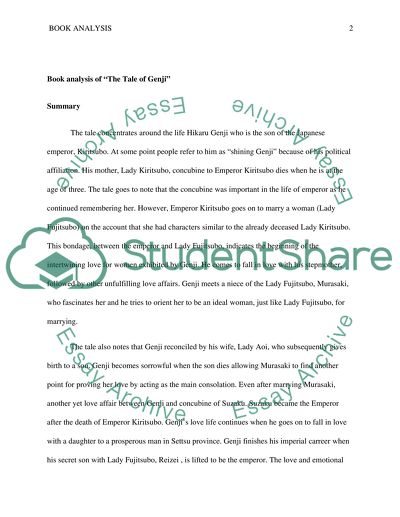Cite this document
(“Book analysis of The Tale of Genji Essay Example | Topics and Well Written Essays - 2000 words”, n.d.)
Retrieved from https://studentshare.org/literature/1497271-book-analysis-of-the-tale-of-genji
Retrieved from https://studentshare.org/literature/1497271-book-analysis-of-the-tale-of-genji
(Book Analysis of The Tale of Genji Essay Example | Topics and Well Written Essays - 2000 Words)
https://studentshare.org/literature/1497271-book-analysis-of-the-tale-of-genji.
https://studentshare.org/literature/1497271-book-analysis-of-the-tale-of-genji.
“Book Analysis of The Tale of Genji Essay Example | Topics and Well Written Essays - 2000 Words”, n.d. https://studentshare.org/literature/1497271-book-analysis-of-the-tale-of-genji.


